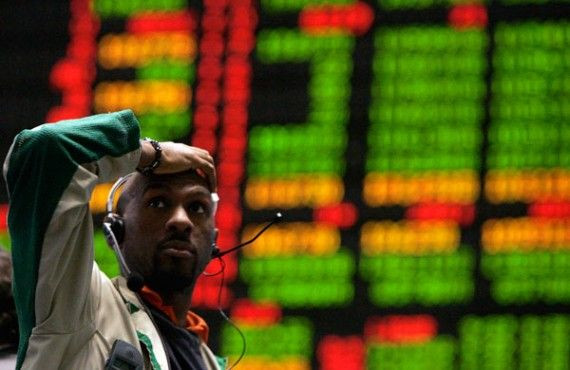What’s Wall Street Missing About Fed's Tightening

Rising interest rates aren't usually a good thing for Wall Street, for several reasons.
They help slow spending across the economy, which hits the top line of listed companies, especially those in the economically sensitive sectors like industrials and housing. They raise the cost of capital for heavily indebted companies. And higher interest rates make future earnings less valuable when discounted to the present.
Why then did Wall Street stage a big rally after the Fed decided to hike interest rates?
The quick answer is that the Fed's rate hike was well telegraphed ahead of time by its chair. Thus, major equity averages already reflected this prospect.
Equity markets were oversold going into the Fed's decision, especially the tech-heavy NASDAQ, which at some point was down close to 20%. In addition, there must be a great deal of short covering going into the triple-witching Friday, the day stock-index futures, stock-index options and individual stock options expired, all at the same time.
Wall Street investors may be missing a couple of things about the Fed's tightening and the message that goes with it.
"The biggest news was not that the Federal Reserve raised its target interest rate by 25 basis points, but rather that FOMC members have increased their forecasts for inflation and their projections for interest rates over the year," observed John Leer, Morning Consult's chief economist, following the FOMC's statement. "Much of these changes reflect the observed and projected impact of the Ukraine war on energy prices, financial market volatility and supply chains. The Fed is counting on a strong labor market to fuel the economy through the end of the year."
But that may not turn out to be the case.
"The Ukraine war has yet to impact employment, but slowing global growth and escalating global conflict could have spillover effects on U.S. jobs, putting the Fed in a particularly challenging position later this year," he adds.
Leer says that the Fed may end up with stagflation, which is hard to deal with by using conventional and non-conventional monetary instruments. And that’s not good for Wall Street.
Commerce Street CEO Dory Wiley is on the same page.
"I think the Fed has been pretty consistent regarding inflation," Wiley said. "It might not be so transitory, and they have basically admitted that, but it's pretty easy to say that moving it up a quarter-point is not necessarily admitting that inflation is a problem."
Professor Robert R. Johnson, CEO and co-founder of Economic Index Associates, sees something lost in the Fed's message.
"The increase in the primary credit rate confirms that the Fed is adopting a more restrictive monetary policy long-run stance," he said.
He argues that market participants should lower their expectations for broad equity market returns as interest rates rise.
"None other than Berkshire Hathaway Chairman Warren Buffett has been quoted as saying, 'Interest rates are like gravity in valuations. If interest rates are nothing, values can be almost infinite. If interest rates are extremely high, that's a huge gravitational pull on value,' " he adds.
We'll see whether gravity returns to Wall Street this week.
© Copyright IBTimes 2025. All rights reserved.






















